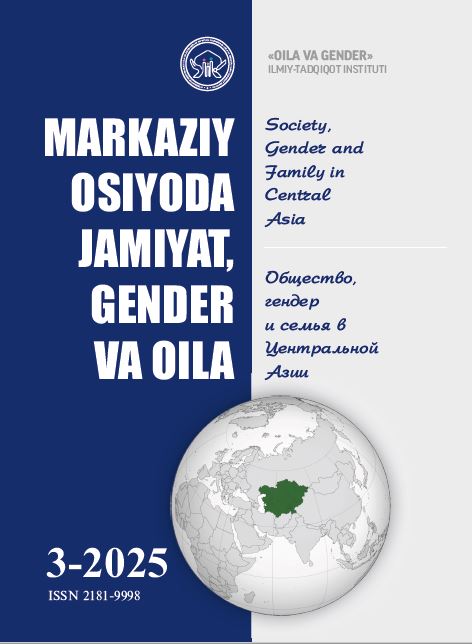The role of female domestic labor migration in ensuring family welfare and reducing poverty
DOI:
https://doi.org/10.65185/mojgo.vi.255Abstract
Women who go abroad to engage in domestic work are increasingly seen as an important economic resource, primarily contributing to increasing family income, investing in children’s education and healthcare, and improving housing conditions. At the same time, female migration also effects family relationships, social values, and gender roles. The article highlights not only the positive aspects of women’s migration in terms of poverty reduction but also addresses the social problems it can cause — such as family separations, challenges in child upbringing and psychology pressure. The findings of the study are significant for developing mechanism aimed at effectively managing female domestic work migration and protecting the socio-economic rights of migrant women
Keywords:
internal and external migration labor resources vocational trainingReferences
Qodirova, Z. Globallashuv sharoitida O‘zbekistonning xalqaro mehnat bozoriga integratsiyalashuvi. – Toshkent, 2016.
Xolmo‘minov Sh.R., Abduramanov X.X. Qishloq aholisining tashqi va ichki mehnat migratsiyasini samarali tashkil etish // “Biznes-ekspert” jurnali. 2018 yil 11-son. – Toshkent, 2018.
International Labour Migration Statistics Database (2023). Global Trends in Domestic Work and Migration // https://www.ilo.org
Anderson, B. (2015). Worker, Helper, Auntie, Maid? Working Conditions and Social Identities of Migrant Domestic Workers in Europe. Journal of Ethnic and Migration Studies, 41(3).
Hochschild A.R. (2000). Global Care Chains and Emotional Surplus Value. In W. Hutton & A. Giddens (Eds.), On the Edge: Living with Global Capitalism.
Sassen, S. (2000). Women’s Burden: Counter-geographies of Globalization and the Feminization of Survival. Journal of International Affairs, 53(2).
Razavi, S. (2009). Engendering Social Policy: Models, Paradigms and Debates. In S. Razavi (Ed.), The Gendered Impacts of Liberalization.
Mahler S.J., & Pessar P.R. (2006). Gender Matters: Ethnographers Bring Gender from the Periphery toward the Core of Migration Studies. International Migration Review, 40(1).
Parreñas, R.S. (2017). The Labor of Care: Filipina Migrants and Transnational Families in the Digital Age. Stanford University Press.
Downloads
Published
How to Cite
License
Copyright (c) 2025 Rabiyev Bobomurod Bahadirovich

This work is licensed under a Creative Commons Attribution 4.0 International License.










